Explore all the information on
Poultry welfare
Proper animal welfare involves providing the proper housing, management, nutrition, disease prevention and treatment, responsible care, humane handling and, when necessary, humane euthanasia. These factors allow for the most optimal and humane growing environment. The concept of animal welfare includes three elements: the bird’s normal biological functioning, its emotional state and its ability to express its natural behaviors. Improving animal welfare can be accomplished through offerings like poultry feed enrichment, which can reduce stress, thereby increasing performance, productivity and profitability. Animal welfare is currently a major requirement for intensive poultry production. Beak trimming, stocking density, free access to feed, heat stress, and air pollutants became important issues, which are regulated in several countries. Animal welfare is observed by watching how birds naturally behave and even by looking at mortality stemming from aggressive behaviors.
Animal production in the last two decades has seen a significant change in terms of improving the production parameters of Poultry and Livestock through various measures. Among the various tools used in improving the production performance of birds and animals, genetic selection forms the most important tool which has been employed. Various genes corresponding to important production and quality traits have been selected and regulated to have a significant improvement in the way our current...
Comments : 0
Recommendations: 1
Stocking density is a critical factor to consider for optimum welfare of commercial broilers Stocking density is typically defined in terms of the number of birds per unit area or the amount of space provided on per bird basis. In commercial production, stocking density of a broiler...
Comments : 1
Recommendations: 0
The first few days of life are some of the most important in chicks' lives. During this time, chicks start developing and set themselves up for the rest of their lifetime. The husbandry decisions made at this point can impact the birds' growth, development, health and welfare. This newsletter will focus on three important...
Comments : 0
Recommendations: 0
Spondylolisthesis, often called ‘kinky back’, is a deformity that affects broiler chickens’ spines. The deformity occurs in the fifth and/or sixth vertebrae (T6) and leads to spinal cord compression making it hard for birds to walk, and in severe cases it can cause...
Comments : 0
Recommendations: 0
I. Introduction Plant-derived isoquinoline alkaloids (IQ) have the potential to support gut integrity and growth performance under conditions of enhanced stress such as heat stress. The previous study revealed that the BW increased in the IQ group, and the level of FITC-d, to evaluate the gut barrier function, reduced in the IQ supplement group (Kitasato et al., 2021). However, a comprehensive study on the effect of IQ on growth performance and gut integrity under heat stress during...
Comments : 0
Recommendations: 0
1. Introduction Air emissions from concentrated animal feeding operations (CAFOs), are reported to cause health impacts for both the animals and humans exposed [1–3]. The concentration of fine particulate matter (PM 2.5 ) and gases emitted from CAFOs can have regional impacts on people living in the area around them [3–7]. More recent studies show that emissions from agricultural facilities can cause the nitrogen enrichment of soils and waterways [8]. While...
Comments : 0
Recommendations: 0
.jpg&w=3840&q=75)

Afla V ONE 5 - 300 ppb Method for Total Aflatoxin Detection in Complete Feeds and Pet Food
Suggested link
1. Introduction Animal welfare is a fundamental component of sustainability, agricultural development and food security. In order for a livestock system to be sustainable, it should be sustainable economically, environmentally and ecologically, and at the same time, it should be accepted ethically and socially [1–3]. Today, a product of animal origin is not considered sustainable unless the social demand for welfare of the production animals is satisfied [1]. Animal...
Comments : 0
Recommendations: 0
1. Introduction In recent years, the poultry sector has been developing rapidly worldwide to meet the growing consumer demand for poultry meat and eggs. Chicken meat is low in saturated fat and rich in protein, vitamins and minerals [1]. Similarly, a hen’s egg is the most affordable source of animal protein and constitutes a complete and highly nutritious food with significant health benefits for consumers [2]. It is estimated that animal-based food demand will grow by...
Comments : 0
Recommendations: 0
1. Introduction In light of the challenges posed by climate change, economic crisis, overpopulation, and high global demand for protein, poultry production emerges as a more environmentally friendly option compared to meat from livestock. It has a lower impact on greenhouse gas emissions and demonstrates higher conversion rates [1]. Additionally, poultry production requires fewer resources and has a faster production cycle, making it an appealing protein source [2]. However, the...
Comments : 0
Recommendations: 0
by Sam Shafer
Particulate matter (PM) can damage bird lungs. Now poultry scientists gather data to give a fuller picture of the effects of PM in different housing systems
Poultry scientists are working to better understand the impacts of particulate matter (PM) on bird health and production. Particulate matter includes very small particles of feed, feathers, animal waste, and dander. Researchers have found that PM...
Comments : 0
Recommendations: 1
by Sam Shafer
We know that young geese benefit from warmer drinking water, but what is the optimal water temperature? Poultry scientists take a closer look
A new investigation into goose health suggests providing drinking water that is at least 18? (64.4?) may boost the activity of digestive enzymes, promote intestinal development, increase water consumption, and even increase goose eye temperature. Based on their findings, the...
Comments : 0
Recommendations: 0
In the United States, consumers have a lot of choice when it comes to food products. Various claims and labels on the products provide consumers with information...
Comments : 0
Recommendations: 0
Free-range commercial layer farming in Australia has been increasing for the last decade in response to consumer demand for free-range eggs. To meet this demand, there is a focus on research to optimise free-range system design and management. A range of external factors have been shown to impact hens’ daily outdoor range use including weather conditions, time of day, season and range enrichments (Richards et al., 2011; Larsen and Rault, 2021). Sunlight intensity and ultraviolet...
Comments : 0
Recommendations: 0
Visual assessments for health and welfare of broiler flocks are regularly performed by farm staff walking through the shed. However, common welfare indicators like footpad dermatitis and hockburn require manual handling of the flock and an automated measurement is desirable. There is potential for automated camera monitoring to complement human inspections for detection of health and welfare conditions and perform additional flock monitoring tasks. A proof-of-concept machine vision system...
Comments : 0
Recommendations: 0


Webinar: Accurate values drive better profit in poultry nutrition.
Suggested link
Connie Mou (University of Georgia) commented on humidity, air movement and dry litter in poultry houses, during IPPE 2020 in Atlanta, USA....
Comments : 7
Recommendations: 5
by Sam Shafer
Poultry scientists investigate microbial presence in low and high stocking densities
As consumer demand for eggs from “free range” chickens grows, a big question lingers: what is the best stocking density for chickens in free range conditions?
Now a new study in The Journal of Applied Poultry Research provides important data on how free range stocking density affects the risk of spreading...
Comments : 0
Recommendations: 0
.jpg&w=3840&q=75)

(Mandarin) Strengthening Pellets for Better Feed Performance
Suggested link
CHOLINE AS A NUTRIENT: BASIC FUNCTIONS Choline is an essential nutrient in most livestock species. It plays a crucial role in neurotransmitter synthesis (acetylcholine), cell membrane signaling (phospholipids), myelin synthesis and lipid transport (lipoproteins). Choline is a precursor of phosphatidylcholine, a phospholipid that besides being part of the composition of cell membranes, is involved in the generation and composition of bile secretions; therefore,...
Comments : 0
Recommendations: 2
Elizabeth Doughman (WATT Global Media) talks to Sam Shafer (PSA) about poultry welfare during transportation. In this episode of Let's Squawk About It, they discuss how truck sensors are giving insights into the temperature, humidity, and other environmental conditions of the vehicle where poultry are kept during transportation. The system notifies key stakeholders, including the driver, in the event there are complications....
Comments : 0
Recommendations: 0
This award recognizes the achievements of PSA members in the early stages of their career in poultry extension. It is given every other year.
Shawna Weimer
University of Arkansas
Originally from Iowa, Shawna Weimer received her BS and MS degrees in Animal...
Comments : 0
Recommendations: 1

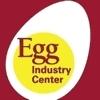

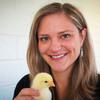



.jpg&w=3840&q=75)


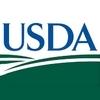



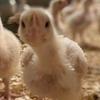





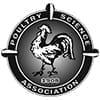



.jpg&w=3840&q=75)









